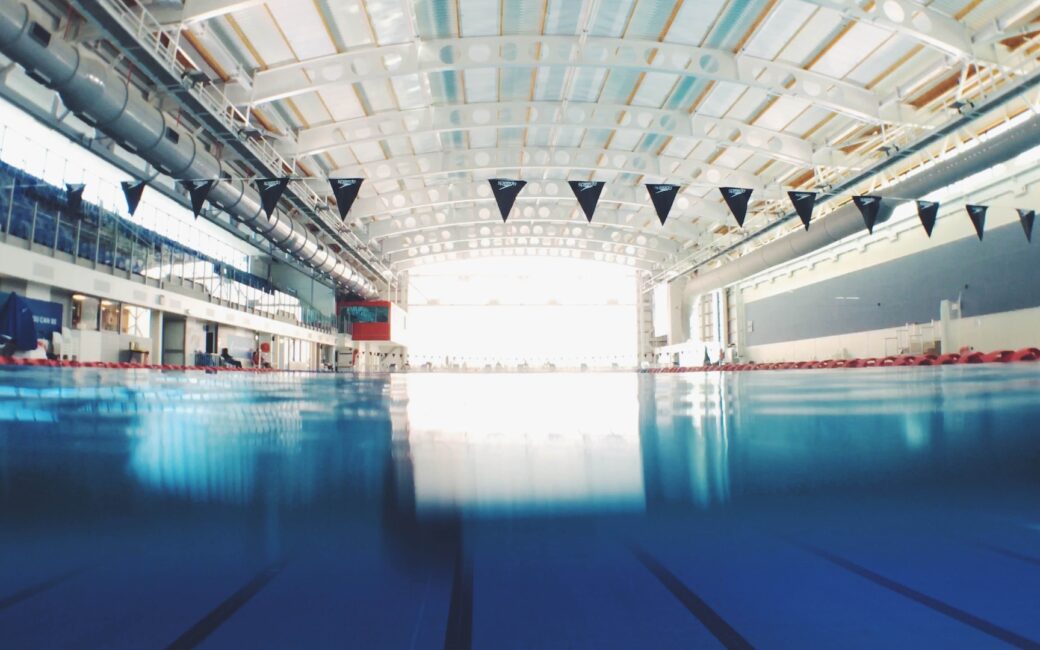A Body of Water
For a long time, I thought about Ruth every time I saw a body of water. She was wearing pink shorts and a lavender t-shirt. It was the first time I noticed that she even existed, and there she was. Face-down at the bottom of the deep end of my backyard kidney-shaped pool. I thought she was a doll; her body was so small under eight feet of water. I turned back to the large party of other high-schoolers and their parents on the deck, not realizing that I had seen the body of a friend’s four-year-old sister. How long did I look away? How many crucial minutes passed before another of our friends saw her body too, only this time seeing the truth? What would have happened if my brain had made the connection, and I had been the one to leap off the deck, diving into the pool? Could I have saved her?
My mother doesn’t remember this, but as a teenager, I used to go swimming late at night in our pool. It was heated, and the moonlight, the lights in and around the pool made it glow. When the night air got chilly, steam would rise from the water. Even after Ruth drowned, I swam with her ghost. I found out later that my father would sit out on the screened-in back porch, watching me from the shadows. This is how I know he loves me, in his own way—hidden in the dark of night so that I couldn’t see his emotions.
When I went off to college, my dad warned me about gaining weight. As a result, I went on a diet my freshman year, eating salads from the salad bar, apples, and drinking Slim-Fast shakes. When I told him I’d lost eight pounds, my dad said, “Well, you could stand to lose five more.” And when I did, he came to see me at school and as soon as he saw me, he said, “Well look, it’s Kate Moss! You look like a little waif that’s going to blow away.” The message that I got was that nothing was good enough, I would never win. I would never measure up.
That first year of college, I read Louise Glück’s poem, “The Drowned Children.” Memorizing the dark words, I let their ghostly rhythm spill off of my tongue, out of my lips, and into the air to release their spirits with my breath. I tried to come to terms with my long-held guilt. I imagined Ruth in the water’s “manifold dark arms.” When I read the words,
What are you waiting for
come home, come home, lost
in the waters, blue and permanent.
I felt a sense of deep peace, like a shadow passing over my face on a sweltering day. A respite. Relief. Maybe she just needed to go home.
Then, the summer after my junior year, I worked in the Admissions Office on my college campus, and I would go swim laps in the indoor pool after work. Trying to wash away my heartbreak after the end of my first relationship, I did the breaststroke, counting each lap until I reached twenty-five. My body was tired, so very tired, but the swimming refreshed my dry soul, even if just for those moments. It was the healthiest thing I did for myself that summer.
I remember the day towards the end of the summer when they emptied the pool to clean it, and without those cleansing breaths, I sunk deeper into my undiagnosed depression. Then, in mid-August, my dad called with the news that my Aunt Carol had died of a heart attack while swimming in a pool in L.A. She was fifty-two. I imagined her heavy body feeling weightless, peaceful at last. I felt a part of myself die with her, even though I’d only met her once. I’d always related to her, when my father looked at my body and told me that if I wasn’t careful, I would become fat like his sister. As I would soon discover, I already had her bipolar genes, so it seemed inevitable that I would have other physical traits. The weight struggles, the health problems, the lifetime of being misunderstood, the emotional rollercoasters, were mine and hers, and they died that night.
It’s been nearly thirty years since Ruth drowned, over twenty since Aunt Carol died, and now I’m at the point where I don’t like to swim. While I used to love feeling submerged, I don’t even dip my toes in. I can’t remember the last time I was in a pool, or even in the ocean at the beach. I stay on land. It’s been a gradual slipping away into fear over the years, as I’ve moved into motherhood. There’s more than just fear—there’s deep shame. As my father predicted, my body has spread over time. My thick pale thighs hardly see the light of day. I loathe bathing suits. I cover up—I hide. And maybe if I don’t swim, I’ll never drown.
At the lake every Labor Day weekend, I sit on the dock, wearing a billowy caftan, floppy hat, and large sunglasses. I watch my young son swimming, splashing in the water, and I hold my breath. If he were to go under, I wonder how fast I could move to retrieve his body from the lake. I imagine my own screams, locked in my throat. I picture the smallest of caskets, a funeral, feeling the rest of myself dying, my body drowning in the watery depths of depression, and how I would blame and blame and blame.
Rachel Paris Wimer
Rachel Paris Wimer is a web content editor by day and a writer by night. She has a BA in English from Washington College and an MA in English from George Mason University. She is an alum of the Pioneer Valley Writers' Workshop and the Tin House Summer 2022 Workshop. Rachel's work has been published in Southeast Review, Microfiction Monday Magazine, Under the Gum Tree, and Scary Mommy. You can find more of her writing at www.dreamoir.com. She lives with her husband and their son in Fairfax, Virginia. She is currently working on a hybrid memoir.

